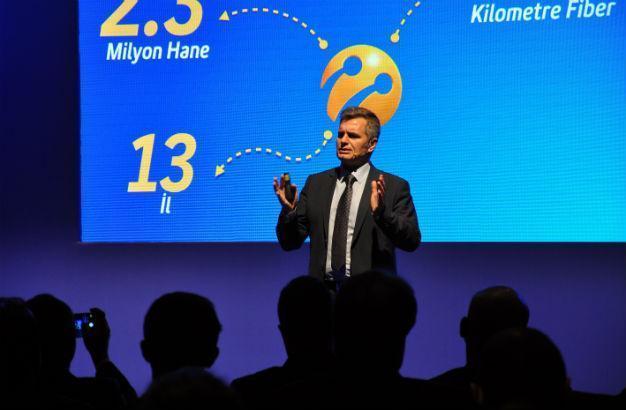Fiber network debate heats up in Turkey ahead of crucial launch of 4.5G
ISTANBUL

AA photo
Türk Telekom has refused to agree to a joint fiber investment offer from other leading communications companies, Vodafone and Turkcell, stirring a debate over who will build fiber networks in the country, which has set ambitious targets in the sector.
Fiber technology is the most critical aspect of the launch of advanced 4G technologies, dubbed 4.5G technologies in Turkey, in line with several adaptations. As the countdown continues to April 2016, when 4.5G technology is expected to be available for consumers, the government has remained silent on regulations to accelerate investments in fiber infrastructure, while telecommunications companies have failed to agree on the sharing of current and planned fiber infrastructure.
Türk Telekom recently rejected a joint investment offer by Turkcell and Vodafone.
In September, Turkcell CEO Kaan Terzioğlu called on other operators to establish an infrastructure company and transfer all their fiber networks to the new company.
Speaking at a press meeting in the Central Anatolian province of Eskişehir on Dec. 23, Senior Vice President Murat Erkan said the number of cities in which Turkcell offers its fiber service had reached 14.
“Turkcell has so far installed 34,600 kilometers of fiber optic networks. We are ready to make it available for the infrastructure company we are proposing in line with Turkey’s future and interests,” said Erkan.
Last week, Vodafone CEO Gökhan Öğüt supported Terzioğlu’s call. “We have been sharing 5,000 base stations for mobile services. The same partnership could be applied to fiber. We are ready for such sharing,” Öğüt said.
Türk Telekom Group CEO Rami Aslan, however, said the group had already been investing for 10 years, adding that those who failed to make investments in the pre-4.5G period were becoming worried.
Leader in fiber infrastructure
Türk Telekom is the leader in fiber infrastructure, with the total investment of the group set to reach 20 billion Turkish Liras by the end of 2015. Other operators have, however, suggested the fiber infrastructure for both themselves and Turkey is insufficient.
During a privatization process in Turkey, the company tasked with infrastructure investments was also sold to Türk Telekom. According to the regulation, Türk Telekom can replace copper cables with fiber cables without incurring any excavation cost – a fact that creates an advantage for Türk Telekom against its competitors.
Before laying down any fiber, Turkcell and Vodafone must first ask Türk Telekom if there is enough space on the current line for extra cables. In recent years, the Information and Communication Technologies Authority (BTK) has introduced a regulation requiring Türk Telekom to rent the fiber line to other operators if there is enough space for extra cables. However, the rental price has remained a source of contention among operators.
